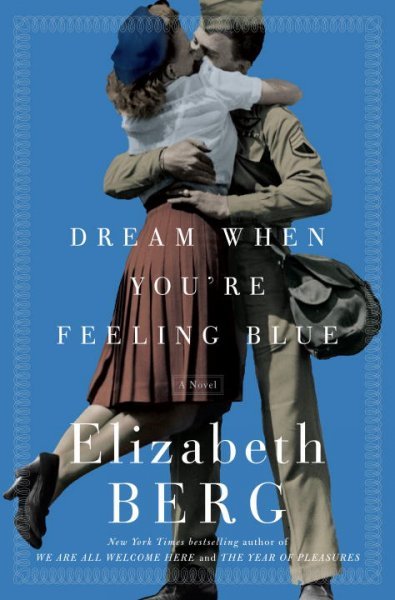 Having commitments to a couple of different reading discussions, I found myself reading Dream When You're Feeling Blue by Elizabeth Berg at the same time that I was listening to A Tree Grows in Brooklyn by Betty Smith. Written sixty years apart, these two books are not naturally lumped together, but they merged a little in my mind due to circumstances. There are common traits that jump out out me.
Having commitments to a couple of different reading discussions, I found myself reading Dream When You're Feeling Blue by Elizabeth Berg at the same time that I was listening to A Tree Grows in Brooklyn by Betty Smith. Written sixty years apart, these two books are not naturally lumped together, but they merged a little in my mind due to circumstances. There are common traits that jump out out me.Both books look back to times of crisis and change in our country. Tree is set in Brooklyn from about 1903 to 1919, when there were many immigrants settling in the city's tenements and the country joined the allies in World War I. Dream is set in Chicago during World War II, when there is a labor shortage and young women are kissing their beaus goodbye. In both, the cities are vital to the plot. (Kitty is always shopping at Marshall Fields.)
In both books, the central characters are young women coming of age. Of course, Tree is more of a coming-of-age story as we follow Francie Nolan from before she can read to the point that she is ready to go off to college (without having gone to high school). In Dream, Kitty Heaney is already past high school and working. Still, the women share some experiences. They both work in factories at some point in the books, and their incomes help their families. Both feel great pride in helping their families financially. They entertain soldiers before they go off to war. Both escape romantic relationships.
Unmarried mothers and their problems are subplots in both stories.
Reading is important to both Francie and Kitty.
 Francie reads much more, as she is nearly friendless. It is reading that allows her to rise out of her dire situation. Kitty is much more social, but reading books that have been recommended ignites her character development.
Francie reads much more, as she is nearly friendless. It is reading that allows her to rise out of her dire situation. Kitty is much more social, but reading books that have been recommended ignites her character development.Both books include many details of daily life, including feminine hygiene. In 1943 Smith was being rather bold in including menstruation in Francie's story. Writing in the twenty-first century, periods and missing them is not risky content for Berg.
Both young women adore their fathers. In Francie's case, her father is her main champion, even though he is an alcoholic who can not support the family. He somehow still knows when she needs a kind word or a flower. Kitty's father is a fairly steady guy, who likes to give advice in the dead of night.
Of course, similarities end when you look at the intent of these stories. Kitty is a sort of average woman, a fictitious host for all the typical experiences of women during World War II. There is nothing, however, average about Francie Nolan, who finds hope where it should not be. Her character is memorable.
I liked both books, but I think that A Tree Grows in Brooklyn is the book that people will still be reading fifty years from now.



No comments:
Post a Comment